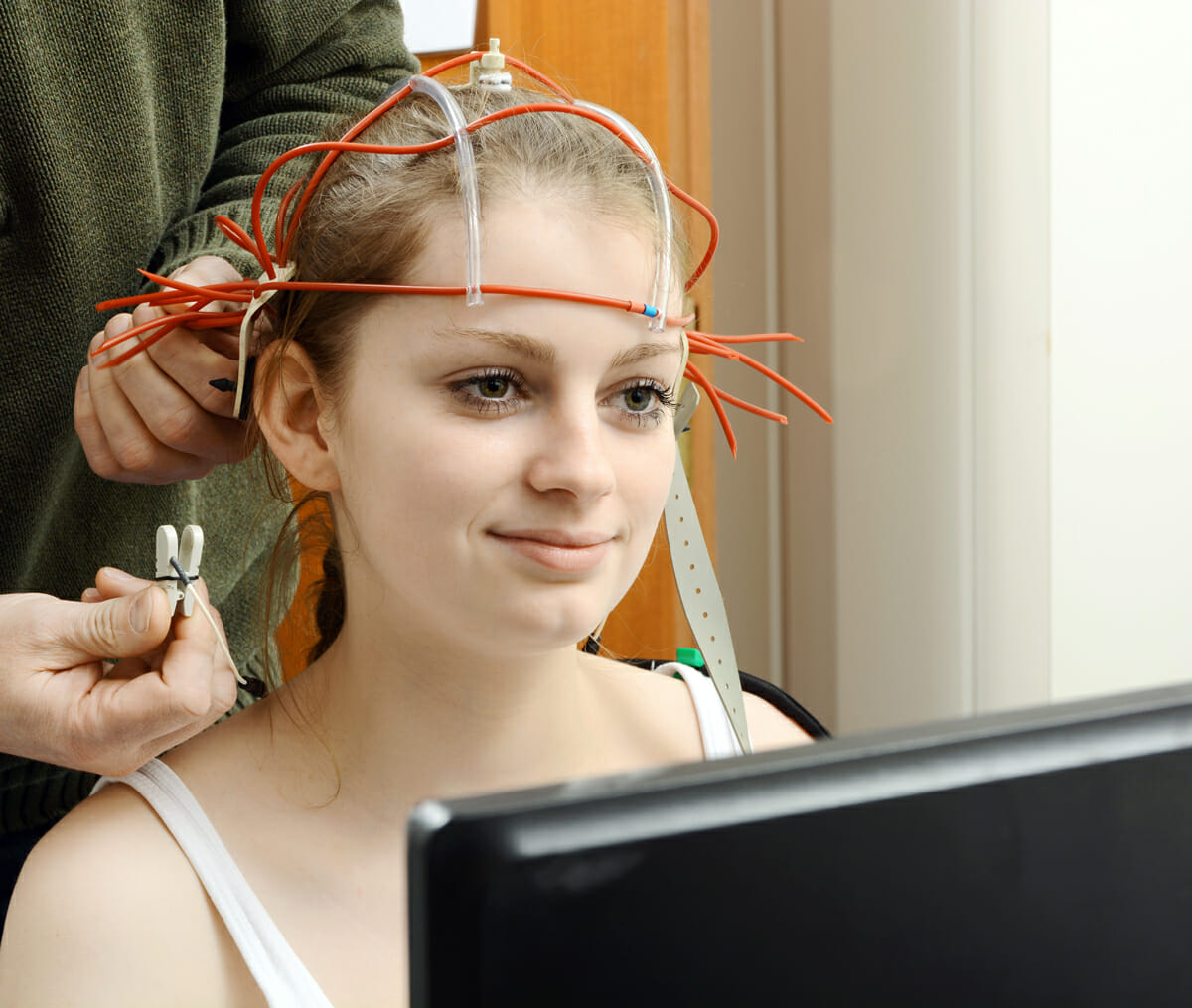Neurofeedback Explained
Neurofeedback is an approach that helps people to manage their brain waves consciously by providing audio or video feedback. Positive or negative feedback is generated for desirable or undesirable brain activities, respectively.
During the neurofeedback treatment, electroencephalography (EEG) is recorded and its various elements are broken down and delivered to the subject using an online response loop, normally in the form of audio, video or both.
Neurofeedback treatment protocols mostly concentrate on the gamma, beta, theta, delta and alpha treatment or a mixture of them such as alpha/theta ratio, beta/theta ratio and so on. However, the frequently used protocols are alpha/theta, alpha, beta, theta and ratio.
What Is Neurofeedback?
Neurofeedback is a form of biofeedback developed to observe, quantify and instruct brain waves to immediately assist a client in improving their capacity to control the brain functions. The method uses specialized equipment, normally an electroencephalograph (EEG), for the measurement and recording of the electrical activity in the brain.
In other words, neurofeedback is a method of training brain activities and works via brainwaves. When brain cells communicate with each other, an electrical impulse called a brainwave is produced. Brainwaves explain, in detail, how a person feels and functions. This includes underlying moods, thought patterns, stress levels and overall brain function.
This method of treatment is also referred to as neuro-biofeedback, neuro-therapy, brainwave biofeedback or EEG biofeedback. The process is preferred because it is non-invasive, and both the providers and people undergoing treatment agree that the process is safe and painless.
Call our admissions line 24 hours a day to get help.
Treating Addiction with Neurofeedback
Drug abuse may be voluntary at first; however, after a certain period, people lose the ability to make a voluntary decision about drugs due to the alteration in the brain structure that causes them to continue abusing drugs.
Considering the brain disease model of addiction, it is clear that addiction can be treated by neurofeedback. A neurofeedback specialist treating a recovering addict can generate a brain map in the areas where there is an abnormal electrical activity. This is followed by generating a training program to correct inactivity, underactivity or overactivity. The symptoms of addiction will start reducing as the physiological hallmarks of the addiction improve.

Research conducted by University of California, Los Angeles (UCLA), revealed that neurofeedback boosts the rate of abstinence and that EEG biofeedback treatment in combination with a 12-step programme can help people struggling with addiction willingly accept the change from addiction to recovery.
EEG treatment, in particular, boosts the subject’s rates of sobriety at the one-year recovery mark. Most of the subjects attained this productive outcome because EEG treatment assists in keeping the brain’s cortex active when addicts are undergoing change.
Neurofeedback sessions are most productive for recovering addicts who opt to train their brains back to a state conducive to a drug-free life.
No matter where you live, there is a drug rehab center that can help you overcome your addiction. We'll help you find it.
Select a County



